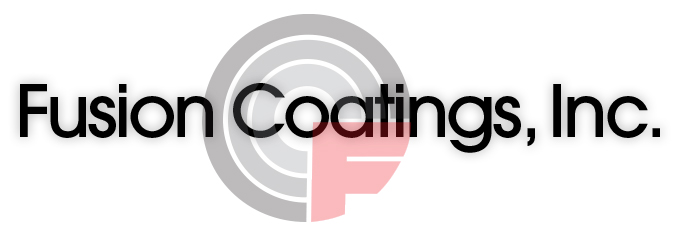Fusion Coatings specializes in spraying and dipping nylon powder. From the smallest of parts imaginable to medical brackets, to large pipe flanges. Provided below is information to help guide you in specifying nylon. If you have any questions....please call or email using the contact form. Thanks!
Nylon powder for use in coating metal can be purchased in two chemistries: nylon 11 or nylon 12. What is the difference? The chemist may argue there are plenty of differences, however, practically speaking Nylon 12 is slightly less hygroscopic than Nylon 11 (less than 1%) Nylon 12 typically will have lower gloss, and nylon 12 may be slightly less expensive to purchase depending on the amount ordered.
When buying nylon, gloss can not be specified. Generally, nylon 11 is around 70 gloss. Nylon 12 is typically 30 gloss. Gloss level will be the same batch to batch, and will only vary depending on the manufacturing process.
Nylon 11 and 12 are manufactured several different ways. However, the coating of metal parts using nylon 11 or 12 is not any easier/harder when using choosing one over the other.
Nylon is a thermoplastic. Meaning its chemistry does not change when it is melted to the metal part. Nylon will melt and re-melt if the metal part is heated again.
Nylon is considered a “softer” coating, easily machined, but can not be easily marked with a fingernail.
Nylon coating powder is aesthetically attractive when applied properly but is never specified simply because it looks good. Costing more than 3 times the typical paint or powder finish, nylon is specified for functionality IE: slip, sound dampening, flange linings, and medical case brackets. Other types of parts we apply nylon to are: drive splines, glove box strikers, door strikers, seat springs, and various clips and clamps used in the aerospace and auto industries.
Application.
Practical electrostatic application can be as thin as .05mm (.002). Typical Minicoat or fluid bed application is from .15mm to +/- .035mm. Target thickness can be adjusted higher depending on part or application up to .5mm +/- .035mm.
The unique characteristics of nylon.
Nylon coating powders have certain superior performance characteristics when they are applied to metal parts.
Lubricity. A metal part that is coated with nylon is slippery. This characteristic of course reduces friction and eliminates noise caused by metal to metal contact.
Elongation. Nylon can be post-formed, machined, or shaved.
Corrosion resistant. Superior salt spray up to 2,000 hours depending on coating thickness. Superior chlorine resistance. 200+hours in 5% solution. (off the shelf bleach).

